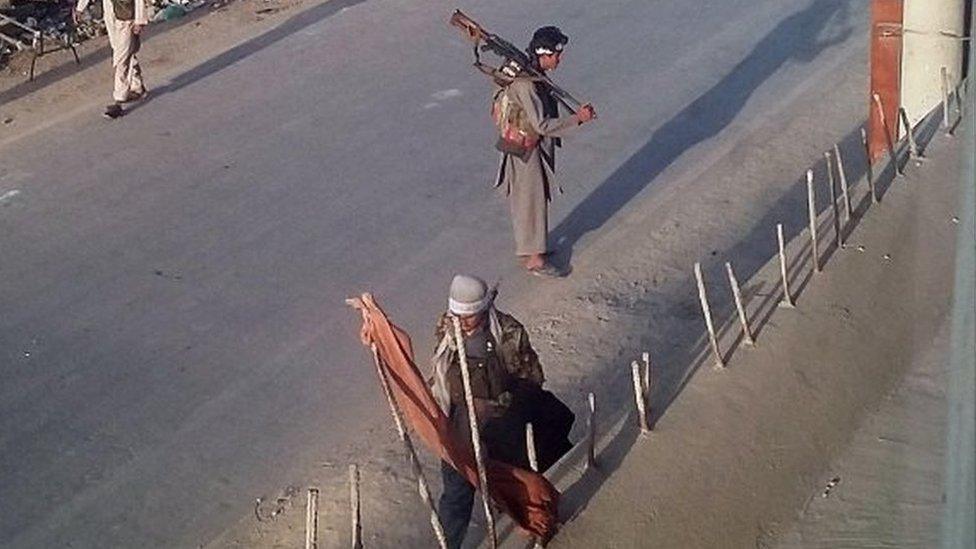Viewpoint: The toll of terror in Afghanistan and Pakistan
- Published
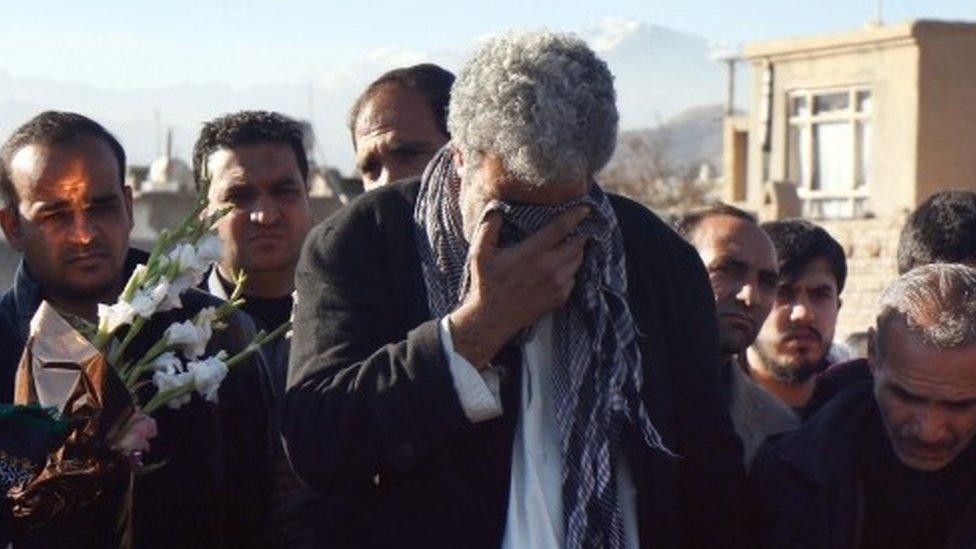
The high level of suffering is having a damaging psychological impact on the bereaved
In the past couple of months there has been a suicide terrorist attack almost every day somewhere in the world. The attacks have covered all the main continents and dozens of countries. The list is becoming endless and includes such countries as Indonesia which had not experienced a terrorist attack for nearly a decade.
Among the countries worst affected have been Afghanistan and Pakistan which alone have accounted for a bomb a day - sometimes several bombs a day.
The level of suffering, the devastation of families, the loss, trauma and psychological impact of all this killing is taking a heavy toll.
The loss to children when one or more parents are killed is particularly heartbreaking.
Yet for the terrorists the soft targets are children, pupils at school and college, kids at play in the street kicking a football around. The terrorists make sure that the parents feel guilty for the rest of their lives.
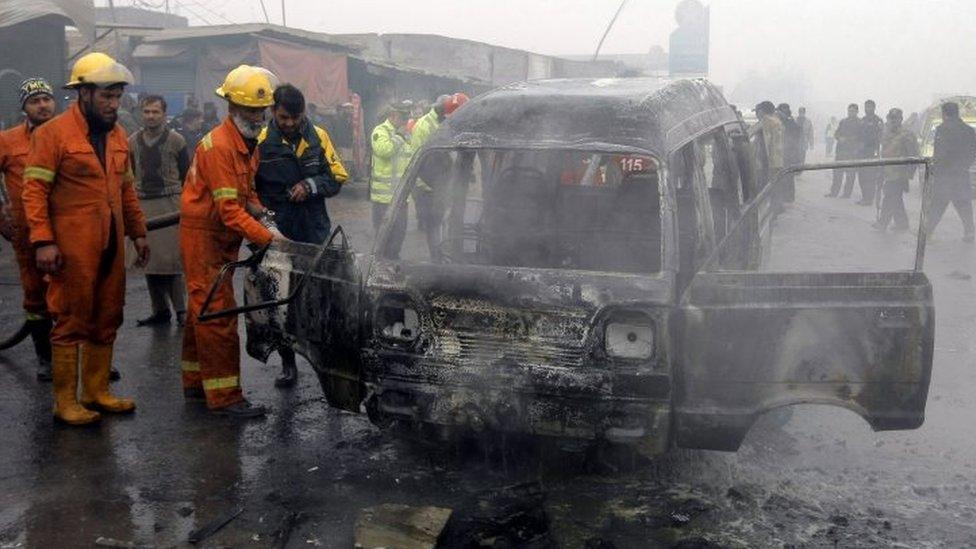
The Muslim world must wake up to the abominations it is allowing within its ranks and join together to fight the extremists
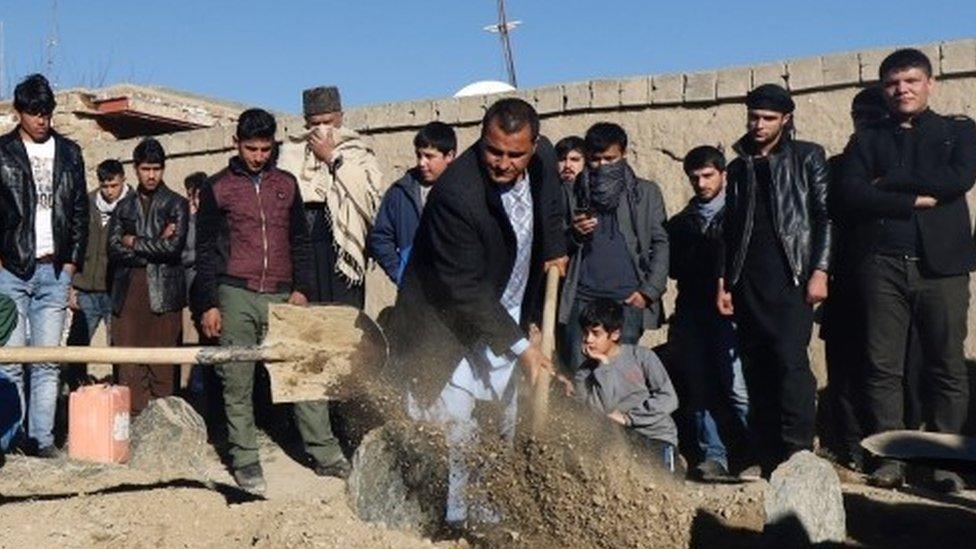
Afghanistan has been facing up to three to four attacks a day and public funerals are commonplace
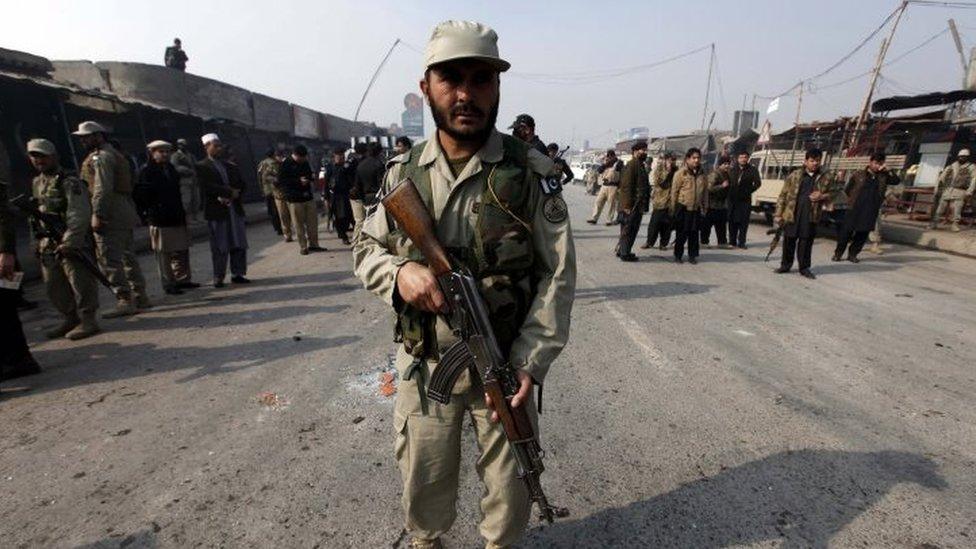
A coalition of the truly willing is needed to combat the scourge of terrorism, the Black Death of our time
Afghanistan has been facing up to three to four attacks a day in the form of Taliban infantry assaults on towns, villages and police stations or in the form of insidious car or motorcycle bombs detonated to wipe out targeted individuals.
On 20 January a suicide car bomber targeted a bus carrying employees of the privately-run Afghan Tolo TV channel, killing seven people.
It was heartbreaking news because many of the dead were younger journalists who bought news to our doorsteps. They left a number of young children behind.
Unrestrained violence
For months the army and the government were telling Pakistanis they had seen the back of Taliban extremism after an 18-month-long military campaign in the tribal regions bordering Afghanistan in which they said about 2,000 militants had been killed.
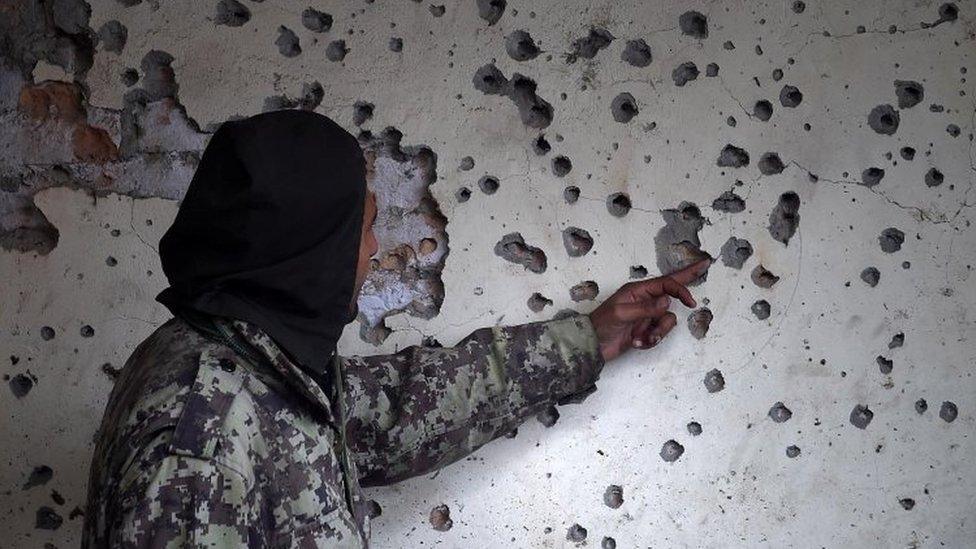
The scars of war are everywhere to be seen in Pakistan and Afghanistan
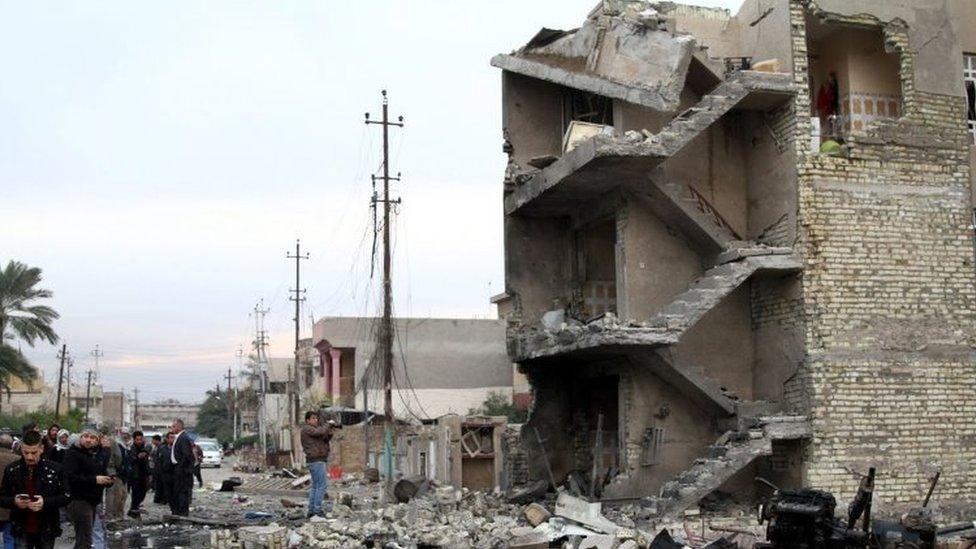
Suffering in Afghanistan and Pakistan is a drop in the ocean compared with what is going on in Syria and the Iraqi capital Baghdad (pictured)
Yet Pakistanis woke up earlier this month to mourn dozens killed in three suicide attacks on three successive days.
The worst - if there is such a delineation when we talk about such unrestrained violence - was the attack on 20 January on a university at Charsadda in the north west of the country that claimed the lives of 22 students and professors.
The day before 10 soldiers and civilians were killed by a suicide bomber at a check post in the north-west, while on 18 January six soldiers were killed in a landmine explosion in the centre of Quetta, capital of Balochistan province.
It is not just the Taliban who are orchestrating the violence. Afghanistan is facing a multi-dimensional civil war with the Afghan Taliban fighting and killing representatives of the Kabul government as well as al-Qaeda, break-away Taliban factions and Central Asian groups. On top of all that it is also at daggers drawn with militants from so-called Islamic State.
Distant onlookers may say it is good that extremists are fighting among themselves, but we who are closer to the ground know the truth.
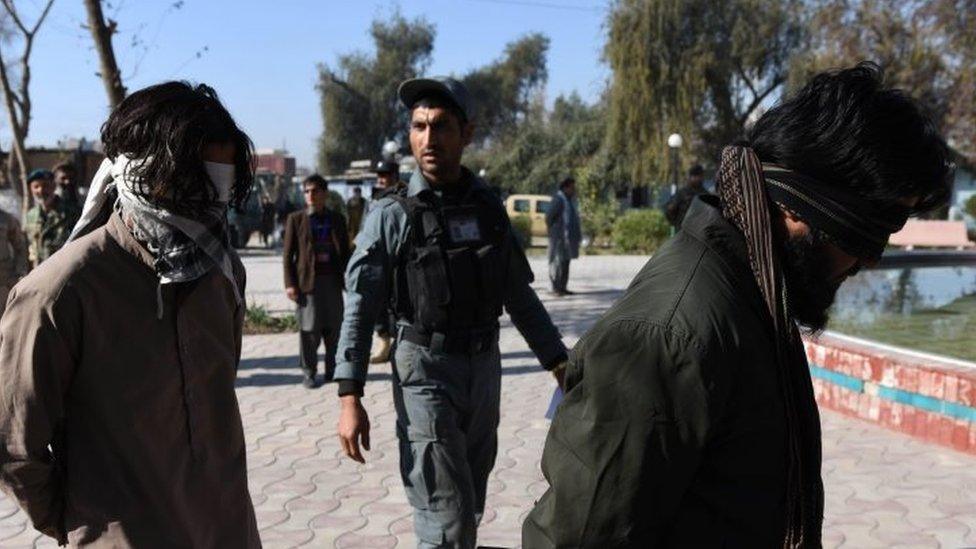
Afghanistan is facing a multi-dimensional civil war with the Afghan Taliban fighting numerous enemies including IS
In such battles it is only the innocent, the bystanders, the children and the people at the wrong place at the wrong time who are the victims. There are no victories to be had or territory to be gained in such brutal internal combat.
The worst tragedies always affect the bravest of men and women.
That was the case with the bombing of the bus in Kabul. Tolo TV employs some of the best and brightest staff and is setting the pace for the rest of the Afghan media.
Saad Mohseni and his family - who run Tolo - have been threatened by the Taliban for some time but they and their staff have laboured on regardless.
Meanwhile the mainstream Afghan Taliban are capturing territory, now exerting control over large swathes of southern and central Afghanistan as well as the fragile road system which they can block at any time. They have the capacity to starve certain cities.
The fact is that the closer you are to such wanton killing the more it affects you, making you irritable, sad and less inclined to go out too much. People are constantly on the watch to ensure their children have returned home safely a night.
Yet people are also aware that such suffering is only a drop in the ocean compared with what is going on in Syria and Iraq, where on many days casualties can soar into the hundreds.
On 17 January for example IS launched a three-pronged assault on the town of Deir al-Zour, killing some 135 Syrian soldiers and civilians while kidnapping another 400.
The fact is that at ground level it does not appear that the world is beating back IS. In fact there is a growing perception of international dithering and procrastination.
The world needs more diplomacy to bring its disparate parts together, to heal longstanding wounds and forge a coalition of the truly willing to combat this scourge, this Black Death of our time.
Above all it requires the Muslim world to wake up to the abominations it is allowing within its ranks and join together to fight the extremists.
The West cannot do for the Muslim world what Muslims must do for themselves.
Similarly it cannot provide endless numbers of troops, trainers and special forces when Muslim nations refuse to take the initiative and prefer instead to be preoccupied by internal conflicts - such as that between Shia and Sunni Muslims.

Ahmed Rashid
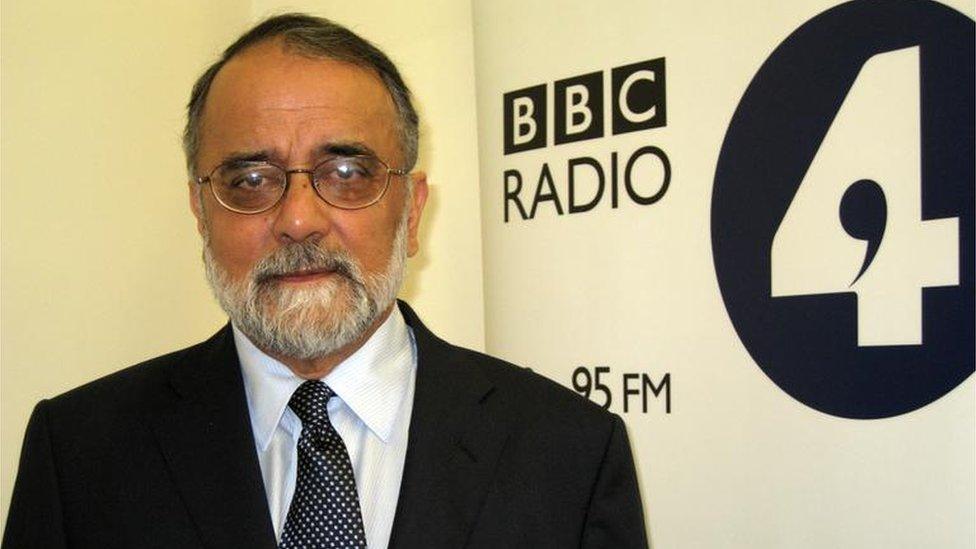
Ahmed Rashid is a Pakistani journalist and author based in Lahore
His latest book is Pakistan on the Brink - The Future of America, Pakistan and Afghanistan
Earlier works include Descent into Chaos and Taliban, first published in 2000, which became a bestseller

- Published25 January 2016
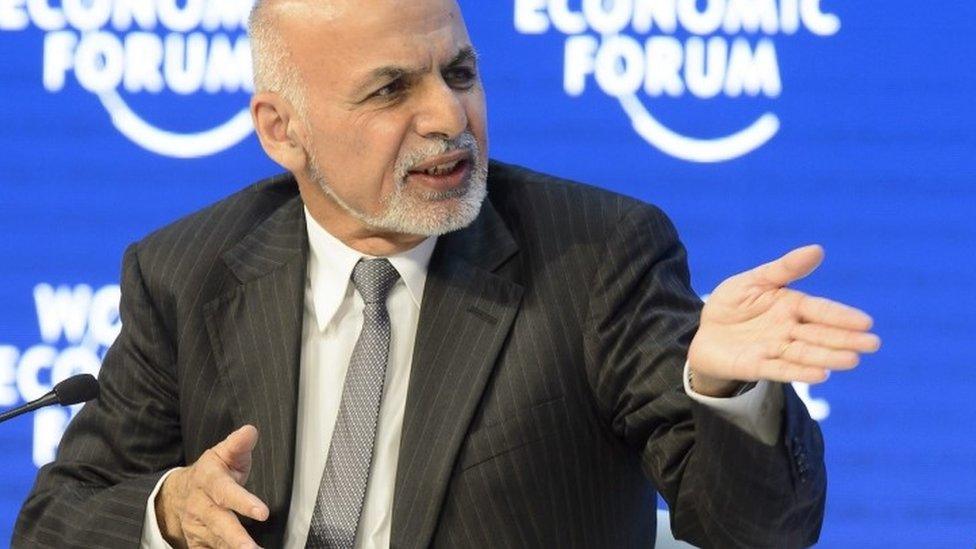
- Published12 August 2022
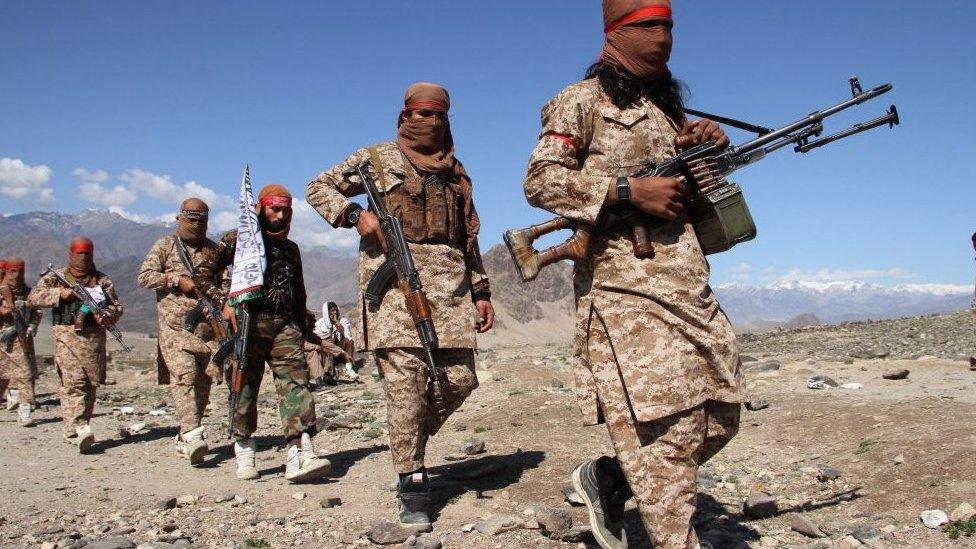
- Published5 January 2016
